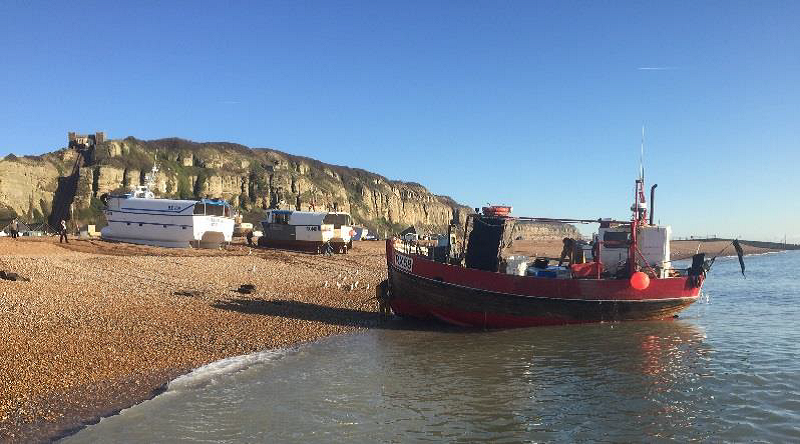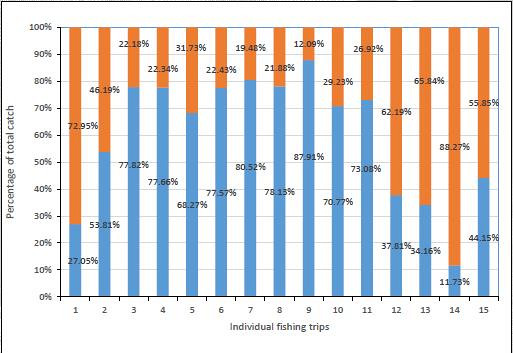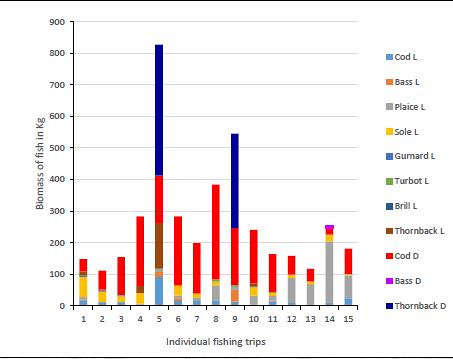Help
Community21 has selected some case study communities and projects to share across the network to inspire and inform others. Should we be featuring yours? If so get in touch.



This study aims to record the impacts of the new Common Fisheries Policy (CFP) rules – the landing obligation- requiring catches in regulated fisheries to be landed and counted against quotas of each EU Member State. This is the first short term study of its kind in UK and probably in Europe, after the new policy rule has been introduced. The main objective under the 2012 reform of the CFP is the elimination of discarding. The landing obligation was introduced on 1st January 2015 for small and large pelagic and industrial fisheries and will be gradually introduced for various other fisheries until 2019.
Knowledge on the scale and effects of discard practices in small fisheries is still minimal, mainly because discard is highly variable, depending on economic and environmental factors (season, quota, location, gear selectivity). Hastings is one of the oldest working fishing ports in Britain, with boats working from town’s beach for over a thousand years. The beach known as the Stade hosts more than 25 small boats (under 10m), the largest beach launched fishing fleet in Britain. Recently, severe quota restrictions on cod in area VIId of the Eastern English Channel have put the fleet under extreme pressure as individual fishermen’s earnings have slumped and throughput in the fish market of locally caught fish has been reduced. A long history of sustainable fishing has been compromised by the pressures to discard high quantities of valuable fish, at certain times of the year.
With the reformed CFP in force, there is an urgent need for independent scientific observations during the implementations phase of the landing obligations. Moreover, from an ecological perspective, discarding can produce a profound ecological impact on marine ecosystems due to changes in the overall structure of trophic webs and habitats.
Hastings is a good case study for exploring practical issues since it has a local market that could expand, yet most of the fish is sold abroad. More specifically, the study aims to:
Estimate of the volume of unwanted catches produced by the fisheries affected by the new rules.
Record and assess the new challenges generated by “land all” rules: sorting, storage, transport, new markets- and their economic impact on Hastings fishery.
Daniel Davies, final year student at the University of Brighton, Hastings Campus, joined the local fishermen on their fishing trips during the very wet and windy winter 2015-2016. Whilst on board the fishing boat, Daniel measured samples from the catch and by catch and recorded species, numbers, sizes and sex, if possible, of all animals within the sample (2-3 buckets per fishing effort). Additionally, skippers on four other boats kept on board logs, in order to compile a wider and more representative data set.
Preliminary results showed that discard is highly variable, depending on many economic and environmental factors (season, quota, location, gear selectivity). The graph below (Fig.1) shows high variations of discard within the Hastings fleet, ranging from 12% to an almost 90%.
In order to maximize the revenue from the catch quotas, fishermen need to avoid catching fish that will result in a curtailment of the fishing season (sometimes referred to as ‘choke species’) and avoid catching undersized, and low-value fish, which would be deducted from their quota for little or no profit. As the graphs above shows, some catches are dominated by one or two species, with a real threat of becoming choke species. Fishermen perceive the impacts of discards on marine ecosystems where they operate, as highly negative. This is mainly because it represents a waste of food for human consumption that could be used by families in coastal communities, in particular those under economic and financial problems.
Yet, if fishermen are required to land everything they catch this will impact on the sorting practices on board fishing vessels as the crew will be required to separate what catch will be landed to the human consumption market from the catch that will be put to other uses. Health and safety on board will be compromised. The operating costs, such as boxes, ice and landing fees will most likely increase. Landing ports may also need to develop onshore handling, storage and refrigeration facilities for the catch that is not destined for human consumption, as these are not able to mix with the landings for the human food chain.
The project is yet to record and comment on the presence/absence of logistics on quay.
A seminar is in preparation for the dissemination of results.
Contact Corina Ciocan or Yasmin Ornby for further information.
[c.ciocan@brighton.ac.uk] or [hfps@btconnect.com]